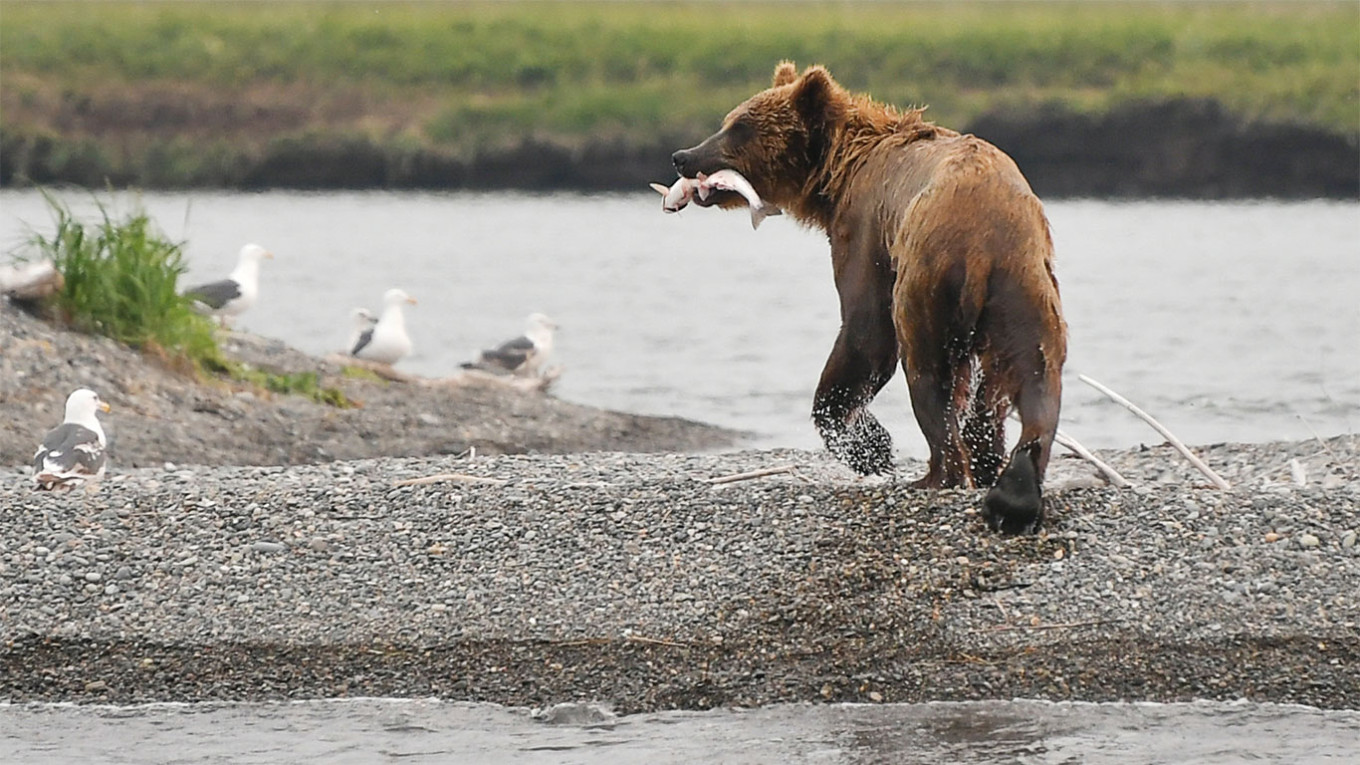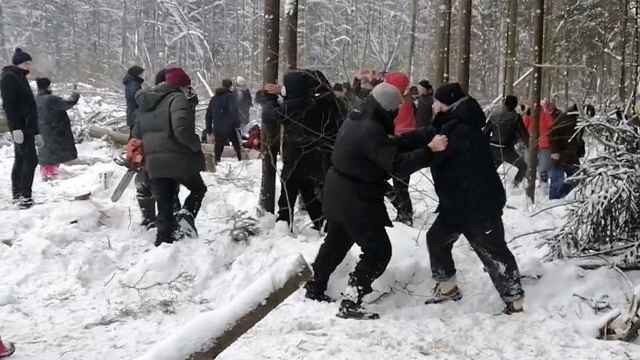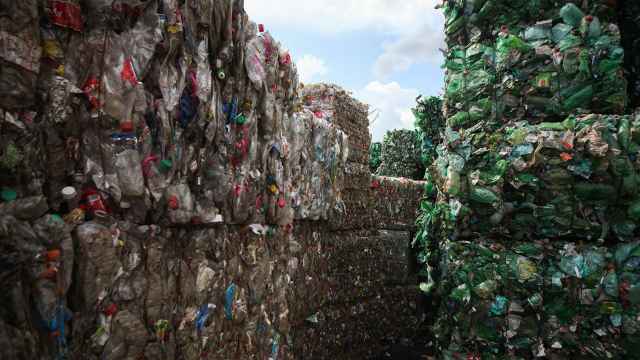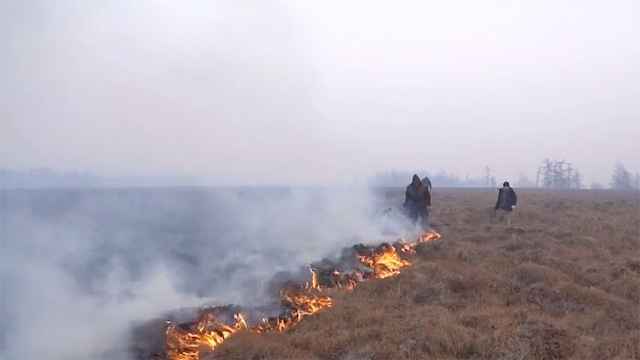The appearance of several tons of dead fish in a forest in Russia’s Far East Kamchatka region has prompted local authorities to open a probe into unauthorized dumping.
The inspection was initiated after photos of the incident appeared on social media, depicting a vast amount of fish strewn across the ground.
Kamchatka regional authorities said Friday that they had identified two local companies suspected of dumping the fish into the forest in the region’s Sobolevsky district, located in the southwest of the Kamchatka peninsula.
“On behalf of Governor Vladimir Solodov, we analyzed all the information we have, contacted people who photographed the fish and waste, and found witnesses who saw this dump,” Roman Vasiliyevsky, deputy chairman of the Kamchatka government, said in a statement.
He added that a team of workers had been deployed to inspect the site.
Investigators are being given protective equipment due to a large number of bears at the site which were lured there by the smell of rotting fish, the statement said.
Officials plan to send the results of the investigation to a local court.
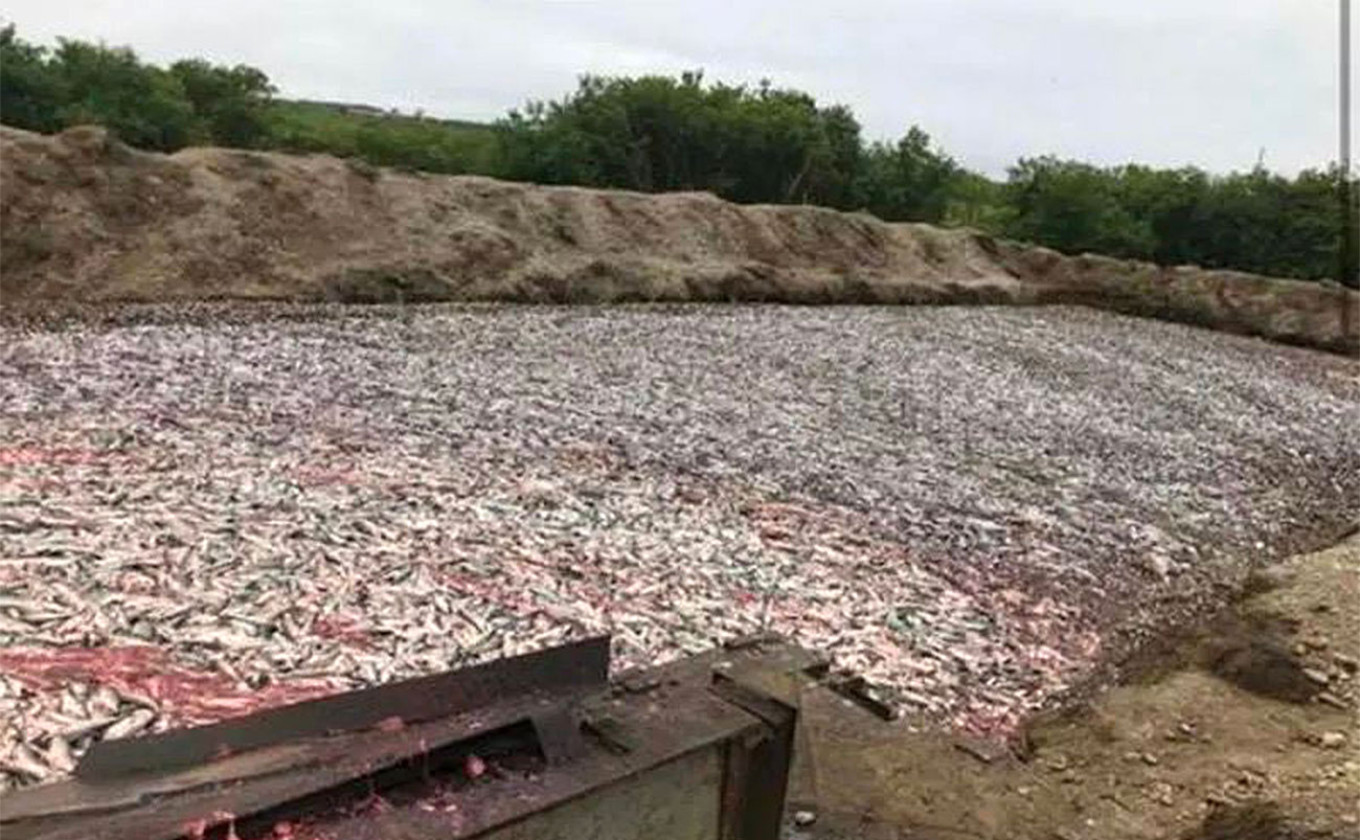
“Today we know for sure that two plants located in the Sobolevsky district violated the law. Now the main task is to collect all the materials and bring the matter to a close,” Vasiliyevsky said, without naming the suspected culprits. “We associate Kamchatka with ecology and it won't do when our residents, working on the territory, create such dumps.”
Ivan Blokov, an environmental expert with over three decades of experience, said the authorities' use of the term “dump” might not be the most accurate.
“The term ‘dump’ is applied to household waste,” he told The Moscow Times. “This is closer to an animal burial ground — the same as one deals with sick cattle.”
He added that the dumping of several tons of fish can have serious harmful impacts on the local ecosystem.
“This is not an isolated situation, it reoccurs quite often. It is hardly possible to completely destroy the fish population due to overfishing in this case, but we can expect a significant decrease in the population," Blokov explained. “Plus, the Kamchatka River is very heavily polluted with oil products and other pollutants. And the fish are negatively affected in this sense, too.”
Local Telegram channels speculated that the company behind the wrongdoing could be the Kolpakovsky fish processing plant, which is located 300 meters away from the site of the dumped fish.
Residents reacted to the incident on social media by arguing that the fish should have been distributed to pensioners or the poor instead of wasted.
“Close these two factories. We'll go without fish and caviar. We don't buy any of it anyway,” one user said.
“And the rybniki [fishery oversight bodies] are chasing grandfathers, pensioners, and boys with fishing rods and fining them instead,” another wrote.
Other observers were more fatalistic in outlook.
“Every year, it’s the same thing,” one user wrote.
Illegal fish dumping is a persistent problem in Kamchatka, with the media regularly reporting similar events with tons of fish waste improperly disposed of. A lack of technical capacity for processing, storage and transportation of large catches is occasionally named as a possible cause.
Blokov also named a lack of technology, a desire to extract maximum profits or mere carelessness as potential causes.
“If you don’t want to invest in processing, then you just take out the caviar and throw out the fish. After all, the most valuable resource is caviar. The difference between prices for caviar and fish is at least tenfold,” the expert said.
“Very often, animals are harvested only for one part [of their bodies], and everything else is thrown away — and not just in our country,” he said, pointing to the poaching of elephants for their ivory tusks in African countries.
Blokov said the approach is similar as that taken to timber: for Russian firms, it is easier to cut down trees and sell the unprocessed timber than to invest in wood processing.
The incident took place as the region hosted a nationwide youth ecological forum devoted to the conservation of land and aquatic ecosystems, among other things.
The “Ecosystem. Preserved Area” forum drew participants from 12 countries, including the Peruvian ambassador to Russia, Kamchatka Governor Vladimir Solodov said in his Telegram channel.
The event’s timing sparked a satiric reaction by the public, with ecologist Zhora Kavanosyan calling the appearance of the fish dump a “life coaching Kamchatka-style for participants of the environmental forum.”
Kamchatka is the country’s largest producer of fish, shellfish and other aquatic products. Last year the regional government said that the catch of those resources has increased by more than 2.2 times over 15 years, reaching a historic record of 1.6 million tons in 2021.
Earlier this year state-run polling agency VTsIOM said that 42% of Russians say they eat fish at least once a week, which is 1.6 times lower than five years ago.
A Message from The Moscow Times:
Dear readers,
We are facing unprecedented challenges. Russia's Prosecutor General's Office has designated The Moscow Times as an "undesirable" organization, criminalizing our work and putting our staff at risk of prosecution. This follows our earlier unjust labeling as a "foreign agent."
These actions are direct attempts to silence independent journalism in Russia. The authorities claim our work "discredits the decisions of the Russian leadership." We see things differently: we strive to provide accurate, unbiased reporting on Russia.
We, the journalists of The Moscow Times, refuse to be silenced. But to continue our work, we need your help.
Your support, no matter how small, makes a world of difference. If you can, please support us monthly starting from just $2. It's quick to set up, and every contribution makes a significant impact.
By supporting The Moscow Times, you're defending open, independent journalism in the face of repression. Thank you for standing with us.
Remind me later.


